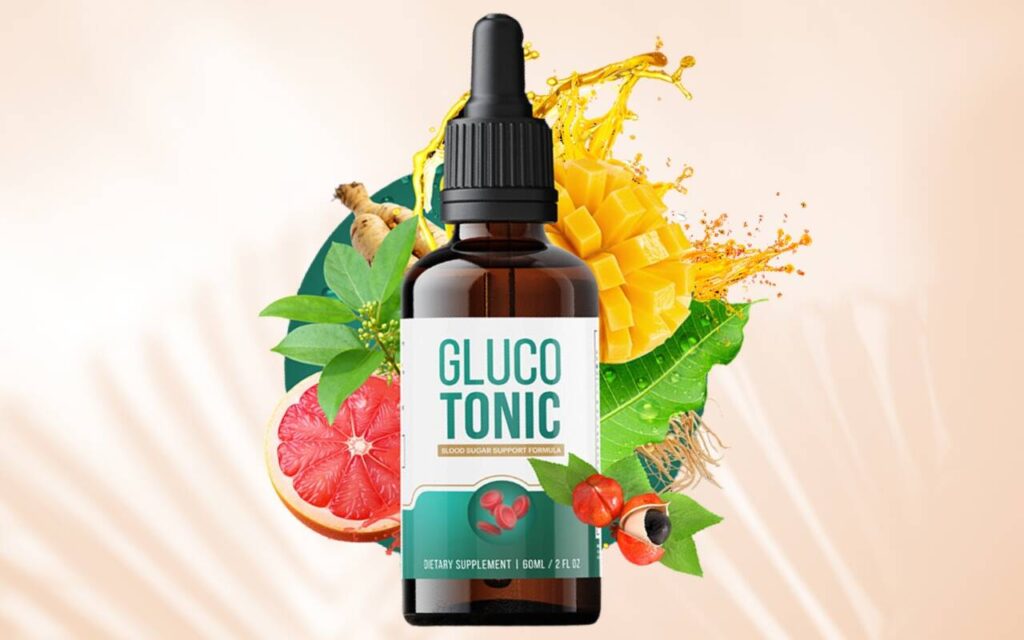Glucotonic Safety: A Comprehensive Review
In today’s health-conscious world, dietary supplements like Glucotonic have gained significant attention for their potential benefits in supporting metabolic health. However, with the increasing popularity of such supplements, concerns about their safety and efficacy naturally arise. This Glucotonic review aims to provide an in-depth analysis of its safety profile, ingredients, potential side effects, and best practices for use.
What Is Glucotonic?
Glucotonic is a dietary supplement formulated to support healthy blood sugar levels. It typically contains a blend of natural ingredients, including herbs, vitamins, and minerals, which work synergistically to promote glucose metabolism. While many users report positive outcomes, understanding its safety is crucial before incorporating it into your wellness routine.
Key Ingredients in Glucotonic
To assess Glucotonic safety, it’s essential to examine its ingredients. Common components found in such supplements include:
- Berberine – A plant compound known for its blood sugar-regulating properties.
- Cinnamon Bark Extract – May improve insulin sensitivity.
- Alpha-Lipoic Acid (ALA) – An antioxidant that supports nerve health and glucose uptake.
- Chromium – A mineral that enhances insulin function.
- Bitter Melon – Traditionally used to manage blood sugar levels.
While these ingredients are generally considered safe, individual reactions may vary.
Safety Profile of Glucotonic
1. Clinical Evidence and Research
Several ingredients in Glucotonic have been studied for their effects on blood sugar. For example, berberine has demonstrated efficacy comparable to some pharmaceutical drugs in clinical trials. However, most research focuses on individual components rather than the specific Glucotonic formulation.
2. Potential Side Effects
Though Glucotonic is marketed as a natural supplement, some users may experience mild side effects, such as:
- Digestive discomfort (e.g., bloating, diarrhea) due to berberine.
- Low blood sugar (hypoglycemia) if taken alongside diabetes medications.
- Allergic reactions to herbal ingredients like cinnamon or bitter melon.
3. Drug Interactions
Glucotonic safety may be compromised when combined with certain medications, including:
- Diabetes drugs (e.g., metformin, insulin) – Risk of excessive blood sugar lowering.
- Blood pressure medications – Some ingredients may have hypotensive effects.
- Anticoagulants – Herbs like cinnamon may increase bleeding risk.
Consulting a healthcare provider before use is strongly recommended, especially for individuals on prescription medications.
Who Should Avoid Glucotonic?
While Glucotonic may benefit many, certain groups should exercise caution or avoid it altogether:
- Pregnant or breastfeeding women – Limited safety data exists for these populations.
- Individuals with liver or kidney conditions – Some ingredients may require detoxification by these organs.
- People with hypoglycemia – The supplement may further lower blood sugar levels.
Best Practices for Safe Use
To maximize Glucotonic safety, follow these guidelines:
- Start with a Low Dose – Gradually increase to assess tolerance.
- Monitor Blood Sugar Levels – Especially if you have diabetes or predia
- Monitor Blood Sugar – Essential for those with diabetes.
- Take with Food – Reduces the risk of gastrointestinal upset.
- Stay Hydrated – Supports kidney and liver function.
- Discontinue if Adverse Effects Occur – Seek medical advice if needed.
Glucotonic Review: User Experiences
Anecdotal reports from Glucotonic reviews highlight mixed experiences. Some users praise its effectiveness in stabilizing blood sugar, while others note minimal changes or mild side effects. Individual factors like diet, lifestyle, and genetics play a significant role in outcomes.
Conclusion
Glucotonic offers a promising natural approach to blood sugar management, but its safety depends on proper usage and individual health conditions. This Glucotonic review underscores the importance of consulting a healthcare professional before starting any new supplement. By understanding its ingredients, potential risks, and best practices, you can make an informed decision about whether Glucotonic is right for you.
Always prioritize safety and efficacy when exploring dietary supplements, and remember that no product can replace a balanced diet and healthy lifestyle.
Frequently Asked Questions
FAQ: Glucotonic Safety
-
Is Glucotonic safe for daily use?
Yes, Glucotonic is formulated with natural ingredients and is generally safe for daily use when taken as directed. However, consult your healthcare provider before starting any new supplement. -
Are there any side effects of taking Glucotonic?
Most users do not experience side effects, but some may notice mild digestive discomfort or allergic reactions. Discontinue use and seek medical advice if adverse effects occur. -
Can Glucotonic interact with other medications?
Glucotonic may interact with certain medications, especially those for diabetes or blood pressure. Always consult your doctor if you’re on prescription drugs before using this supplement. -
Who should avoid taking Glucotonic?
Pregnant or breastfeeding women, individuals with chronic medical conditions, or those under 18 should avoid Glucotonic unless approved by a healthcare professional.


